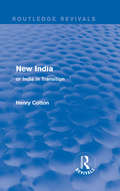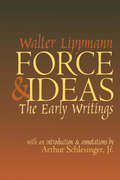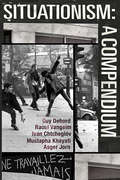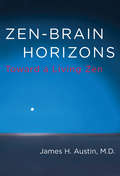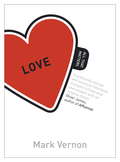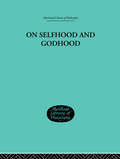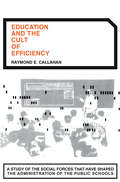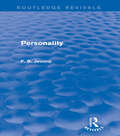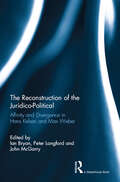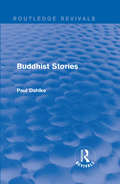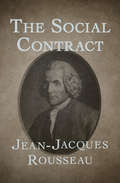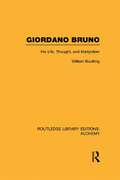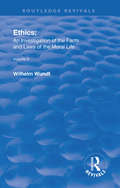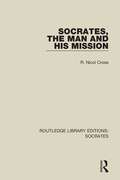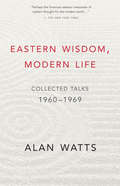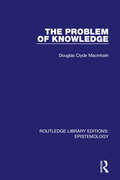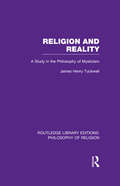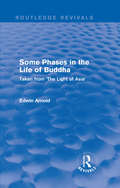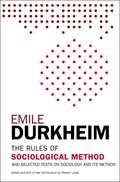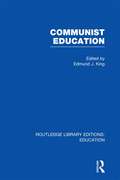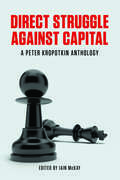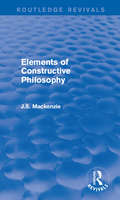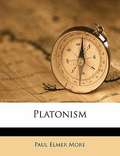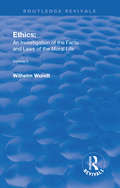- Table View
- List View
Privacy Rights: Moral and Legal Foundations
by Adam D. MooreWe all know that Google stores huge amounts of information about everyone who uses its search tools, that Amazon can recommend new books to us based on our past purchases, and that the U.S. government engaged in many data-mining activities during the Bush administration to acquire information about us, including involving telecommunications companies in monitoring our phone calls (currently the subject of a bill in Congress). Control over access to our bodies and to special places, like our homes, has traditionally been the focus of concerns about privacy, but access to information about us is raising new challenges for those anxious to protect our privacy. In Privacy Rights, Adam Moore adds informational privacy to physical and spatial privacy as fundamental to developing a general theory of privacy that is well grounded morally and legally.
Routledge Revivals (1909): or India in Transition
by Henry CottonFirst published in 1909, the purpose of this book was to draw attention to the political, social and religious changes that were taking place in India and detail how this should inform British colonial policy. The author argues that the political situation demanded decisive action as several factors had caused increasing difficulties in administration: waning enthusiasm on the part of English officials, greater tension between the governors and the governed — often caused by colonial arrogance which had been brought into sharper relief by spread of education and the growth of patriotic feeling. He also argues that the crux of India’s economic difficulties was the poverty of its people and asserts that the solution to both problems was the ‘sympathetic and systematic encouragement of her legitimate aspirations and patriotic tendencies’. In regard to the social and religious changes, the author observes that the changes are not less considerable and advises that the government should, as far as was possible, maintain the existing basis by a policy of ‘wise conservation’. This book will be of interest to students of Indian history and colonialism.
Force and Ideas: The Early Writings
by Walter LippmannThe acclaim for Lippmann the political thinker has at times obscured the equally impressive accomplishments of Lippmann the journalist. His output was prodigious, his influence on journalism significant. According to James Reston: "He has given a generation of newspapermen a wider vision of their duty." Early Writings provides a unique opportunity to rediscover this journalistic Lippmann and to observe the formative years of a brilliant mind.In 1913, just three years out of Harvard, Lippmann was asked by Herbert Croly to help plan and edit a new "weekly of ideas," the New Republic. Beginning with its first issue in 1914 and continuing through the following six years, Lippmann wrote numerous signed and unsigned articles. Here are the best of them, written during the exciting political era that began with the trauma of World War I and ended in the stasis of Republican Normalcy.Pulitzer Prize-winning historian, Arthur Schlesinger, Jr., places Lippmann in historical context while recreating the intellectual ambiance of the Wilsonian era. His annotations identify little-remembered personages and clarify issues that time has befogged. But in another sense, the issues and personages of 1910-1920 are only too familiar. Our world is still a world of war, ineffectual international political organizations, disappointed idealism, nerve-wracking platitudes, social unrest, and slinking politicians.
Situationism: A Compendium
by Guy Debord Ivan Chtcheglov Mustapha Khayati Raoul Vaneigem Asger JornAfter Guy Debord's seminal Society of the Spectacle, this new compendium brings together eight other important situationist works. Ivan Chtcheglov opens proceedings via his Formulary for a New Urbanism (1953), with it's quasi-mythical demand that resonated down through generations: "The hacienda must be built", followed by two brief but illuminating pieces from Asger Jorn, who's sandpaper book cover later turned up under the same Factory Records roof as Manchesters' own Hacienda, on the Durrtti Column's "Return of the Durrutti Column" ( the title itself lifted from Andre Bertrand's détourned pro-situ comic strip). Debord's The Decline and Fall of the Spectacle-Commodity Economy-was an immediate, razor sharp response to the LA/Watts Riots of 1965, it's analysis of the relationship between the rioter and the meaningless, unaffordable commodities they loot or destroy resonating heavily today. Tunisian situationist Mustapha Khayati contributes Address to Revolutionaries of Algeria and of All Countries and the game changing "On the Poverty of Student Life", the match that arguably lit the fires of May 68'. Raoul Vaneigem's The Revolution of Everyday Life finishes things off in defiant fashion : ". You're f*%@g Around With Us? -- Not For Long!"
Zen-Brain Horizons: Toward a Living Zen (The MIT Press)
by Austin James H.In Zen-Brain Horizons, James Austin draws on his decades of experience as a neurologist and Zen practitioner to clarify the benefits of meditative training. Austin integrates classical Buddhist literature with modern brain research, exploring the horizons of a living, neural Zen. When viewed in the light of today, the timeless wisdom of some Zen masters seems almost to have anticipated recent research in the neurosciences. The keen attentiveness and awareness that we cultivate during meditative practices becomes the leading edge of our subsequent mental processing. Austin explains how our covert, involuntary functions can make crucial contributions to the subtle ways we learn, intuit, and engage in creative activities. Austin begins by looking back at ancient Buddhist narratives. He then weaves together the major themes of self, attention, emotion, language, and insight. He goes on to examine Zen and psychology as cultural developments, including recent information about how a clear, calm awareness can change the meditating brain. He considers the pathways through which intuitions develop on their way to becoming realized, exploring the phenomena of the spontaneous color imagery that arises during meditation. Looking out even further into the future, Austin discusses the universal themes of creativity, happiness, openness, and selflessness. Along the way, he bows in homage to William James, explores "Buddhist Botany" and "Avian Zen," demonstrates why living Zen means much more than sitting quietly indoors on a cushion, and provides simplified advice that helps guide readers to the most important points.
Love: All That Matters (All That Matters)
by Mark VernonLove: All That Matters argues that the modern view on love has been distorted by a fixation on romantic love that has depleted our resources for living through the darker sides of love, whereas in fact there are several ways in which humans give and experience love over the course of their lives and it is best to have access to them all.Vernon draws on science, psychology, philosophy and literature, to examine eight different kinds of love, each associated with a phase of human development. From infant narcissism and the emergence of eros, through puberty and the rush of romantic love, to the end of life and the love of God, this is a beguiling tour of the most mysterious force of all.This accessible and readable book will appeal to both students and general readers, giving a fascinating introduction to the psychology and philosophy of love - and what matters most about it.
On Selfhood and Godhood
by Campbell, C AFirst published in 2002. Routledge is an imprint of Taylor & Francis, an informa company.
Education and the Cult of Efficiency
by Raymond E. CallahanRaymond Callahan's lively study exposes the alarming lengths to which school administrators went, particularly in the period from 1910 to 1930, in sacrificing educational goals to the demands of business procedures. He suggests that even today the question still asked is: "How can we operate our schools?" Society has not yet learned to ask: "How can we provide an excellent education for our children?"
Personality (Routledge Revivals)
by F. B. JevonsFirst published in 1913, Jevons’ Personality marries the disciplines of philosophy and psychology in order to question the existence of personality and the arguments surrounding it. Intriguingly, Jevons suggests that if a person can question their own personality and existence, by extension they can also question the personality and existence of God. The book is arranged into four chapters based on a series of lectures delivered in Oxford in 1912: these discuss such areas as the relationship between science, psychology, and personality; the argument that "there are changes, but no things which change", and consequently there are changes, but no persons who change; and, the concepts of individualism and unity.
The Reconstruction of the Juridico-Political: Affinity and Divergence in Hans Kelsen and Max Weber
by Peter Langford Ian Bryan John McGarryHans Kelsen and Max Weber are conventionally understood as the original proponents of two distinct and opposed processes of concept formation generating two separate and contrasting theoretical frameworks for the study of law. The Reconstruction of the Juridico-Political: Affinity and Divergence in Hans Kelsen and Max Weber contests the conventional understanding of the theoretical relationship between Kelsen’s legal positivism and Weber’s sociology of law. Utilising the conceptual frame of the juridico-political, the contributors to this interdisciplinary volume analyse central points of affinity and divergence in the work of these two influential figures. Thus, the chapters collected in The Reconstruction of the Juridico-Political offer a comprehensive reconsideration of these affinities and divergences, through a comparison of their respective reconstruction of the notions of democracy, the State, legal rights and the character of law. From this reconsideration a more complex understanding of their theoretical relationship emerges combined with a renewed emphasis upon the continued contemporary relevance of the work of Kelsen and Weber.
Routledge Revivals: Buddhist Stories (Routledge Revivals)
by Paul DahlkeFirst published in 1913, this book presents a translation of five stories written by the the author. Each of the five stories illustrates and elucidates central concepts in Buddhist philosophy while eschewing any technical terminology. As such, this book is ideal for those seeking an accessible introduction to Buddhist philosophy and will provide a platform for further study.
The Social Contract: Or, The Principles Of Political Rights (World Classics Ser.)
by Jean-Jacques RousseauThe eighteenth-century philosopher&’s landmark treatise against monarchy that inspired the French and American Revolutions. &“Man is born free, and everywhere he is in chains.&” With these stirring words, Jean-Jacques Rousseau begins The Social Contract—the first shot in a battle of ideas that would set the stage for the American War of Independence and the French Revolution. In the feverish days of the Enlightenment, Rousseau took aim squarely at the all-powerful French monarchy, proclaiming that no despot, no matter how powerful, had the right to terrorize his people. He laid out a plan for a new kind of government—an idea that was radical then, and remains so now. The Social Contract is a landmark document from a fascinating period in world history and an invaluable guide to the foundations of modern democracy. This ebook has been professionally proofread to ensure accuracy and readability on all devices.
Giordano Bruno: His Life, Thought, and Martyrdom (Routledge Library Editions: Alchemy)
by William BoultingThis comprehensive book outlines the life and works of an important revolutionary intellectual of the 16th Century. This book follows Bruno’s life and the development of his thought in the order in which he declared it. Giordano Bruno was an Italian Dominican friar, philosopher, mathematician and astronomer. He was burned at the stake after the Roman Inquisition found him guilty of heresy but his modern scientific thought and cosmology became very influential. His writings on science also showed interest in magic and alchemy and those are outlined in this book alongside what he is most remembered for - his place in the history of the relationship between science and faith.
Revival: Volume III: The Principles of Morality and the Sphere of their Validity (Routledge Revivals)
by Wilhelm WundtIt has been my object in the present work to investigate the problems of ethics in the light of an examination of the facts of moral life. One reason for this procedure is my desire to conduct the reader by the same path that I myself have followed in approaching ethical questions.
Socrates, The Man and His Mission (Routledge Library Editions: Socrates #3)
by R. Nicol CrossThis book, first published in 1914, examines the life of Socrates and his teaching, and also details the world in which he lived, the Greece of the time experiencing a breakdown of authority in religion, morality and society.
Eastern Wisdom, Modern Life
by Alan WattsAlan Watts introduced millions of Western readers to Zen and other Eastern philosophies. But he is also recognized as a brilliant commentator on Judeo-Christian traditions, as well as a celebrity philosopher who exemplified the ideas -- and lifestyle -- of the 1960s counterculture. In this compilation of controversial lectures that Watts delivered at American universities throughout the sixties, he challenges readers to reevaluate Western culture's most hallowed constructs. Watts treads the familiar ground of interpreting Eastern traditions, but he also covers new territory, exploring the counterculture's basis in the ancient tribal and shamanic cultures of Asia, Siberia, and the Americas. In the process, he addresses some of the era's most important questions: What is the nature of reality? How does an individual's relationship to society affect this reality? Filled with Watts's playful, provocative style, the talks show the remarkable scope of a philosopher at his prime, exploring and defining the sixties counterculture as only Alan Watts could.
The Problem of Knowledge (Routledge Library Editions: Epistemology)
by Douglas Clyde MacintoshOriginally published in 1916. This book reviews the common problems of philosophy and then critiques the varied epistemological theories of the time. A theory of knowledge may be either dualistic or monistic and realistic or idealistic. Examining the resulting doctrines at the beginning, this book then goes on to consider mysticism, psychology, logic, consciousness, intellectualism and then scientific method. A fascinating insight into early Twentieth century philosophy.
Religion and Reality: A Study in the Philosophy of Mysticism (Routledge Library Editions: Philosophy of Religion)
by James Henry TuckwellThis discussion of the search for religious truth addresses a universal view of religion that can be termed ‘philosophical mysticism’ from a rational basis of experience. Originally published in 1915, this is a classic of theological thinking that investigates the fundamental nature of religion and ‘perfect’ experience.
Routledge Revivals: Taken from 'The Light of Asia' (Routledge Revivals)
by Edwin ArnoldFirst published in 1915, this book presents a dramatization of part ofthe author's The Light of Asia. The original text represents one of the first successful attempts to popularise Buddhism and its founder Gautama Buddha — presenting his life, teachings and philosophy in verse poetry. This adaptation dramatizes part of the The Light of Asia and includes staging instructions, properties required, illustrative drawings of suggested costumes, and incidental music composed specifically for the piece. This book will be of interest to students of Indian and Buddhist literature — and how this has interacted with the West — as well as students of drama.
The Rules of Sociological Method: And Selected Texts on Sociology and its Method (Contemporary Social Theory Ser.)
by Emile Durkheim Steven LukesConsidered a landmark work when it was first published in 1895, The Rules of Sociological Method represents Emile Durkheim's manifesto for sociology. He argues forcefully for the objective, scientific, and methodological underpinnings of sociology as a discipline and establishes guiding principles for future research. With a substantial new introduction by the leading Durkheim scholar Steven Lukes, the book explains and sets into context Durkheim's argument. The still-controversial debates about The Rules of Sociological Method's six chapters are examined and their relevance to present-day sociology is discussed. The edition also includes Durkheim's subsequent thoughts on method in the form of articles, debates with scholars from other disciplines, and letters. This is an essential resource for students and scholars hoping to deepen their understanding of one of the pioneering voices in modern sociology and twentieth-century social thought. Durkheim's methodology is still relevant today. With substantial notes on context, this revised edition will greatly ease the task of students and scholars studying Durkheim and will engage a new generation of readers with his rich contribution to the field.
Communist Education (Routledge Library Editions: Education)
by Len Barton Martin LawnDevelopments and trends in Communist education are traced in this authoritative survey by specialists. Eight chapters deal with particular aspects: ideology, psychology, the selective process, the roles of teachers and parents, polytechnical education, the universities and professional institutes. Three chapters survey the former East Germany, Poland and China as special case-studies. A concluding chapter examines common ground between Communist and other systems.
Direct Struggle Against Capital
by Iain Mckay Peter KropotkinThis is the most extensive collection of Peter Kropotkin's writings available in English. Over half the selections have been translated for the first time or salvaged from long-out-of-print pamphlets and newspapers. Both an introduction to classic texts and a recontextualization of Kropotkin from saintly philosopher to dangerous revolutionary, Direct Struggle Against Capital includes a historical introduction, biographical sketch, glossary, bibliography, and index.Peter Kropotkin was one of anarchism's most famous thinkers. His classic works include The Conquest of Bread and Mutual Aid: A Factor of Evolution.Iain McKay has edited An Anarchist FAQ (volumes one and two) and Property Is Theft: A Pierre-Joseph Proudhon Anthology.
Elements of Constructive Philosophy (Routledge Revivals)
by J.S. MackenzieJ.S. Mackenzie surveys Western philosophy from Socrates to the New Realists in an uncomplicated and approachable style. Originally published in 1917, this text serves as a useful introduction to philosophy and well-summarises the key theories of great philosophers throughout the centuries and their bearing on early twentieth-century thought. It is ideal for students of Philosophy, both for beginners and the more advanced.
Platonism
by Paul Elmer MoreThough this book goes out under the rather presumptuous title of Platonism, no one can be more aware than the author of the incompleteness of its argument. Almost nothing, for instance, is said of education and art and government
Revival: Volume II: Ethical Systems (Routledge Revivals)
by Wilhelm WundtThe present work aims to investigate the problems of ethics in the light of an examination of the facts of moral life.

